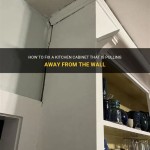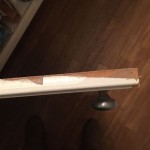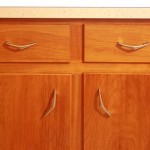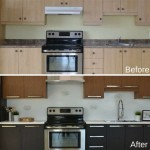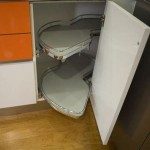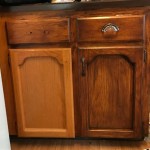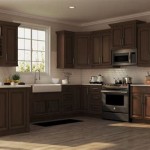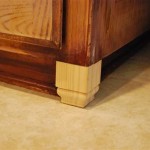Essential Aspects of Painting Over High-Gloss Kitchen Doors
Updating the appearance of your kitchen is often a high priority when renovating a home. The kitchen is where families and friends spend a lot of time together, so it's no wonder that homeowners want it to be both beautiful and inviting. Whether you want to enhance the aesthetics of your kitchen or update outdated finishes, painting over high-gloss kitchen doors is a great way to give your kitchen a fresh new look. However, it's essential to approach this task with the right knowledge and techniques to achieve a professional-looking finish. Understanding the essential aspects of painting over high-gloss kitchen doors will help you navigate this process successfully.
Understanding the Properties of High-Gloss Surfaces
Prior to beginning your project, it is important to understand the properties of high-gloss surfaces. The glossy finish on kitchen doors is achieved by applying multiple layers of paint or lacquer, which creates a smooth, reflective surface. This type of finish is highly durable and resistant to stains and scratches; however, it can be challenging to paint over due to its slick nature. Conventional paint tends to bead up instead of adhering to the glossy surface. To successfully paint over high-gloss kitchen doors, specific preparation techniques and the right materials are necessary.
Surface Preparation is Key
Proper surface preparation is crucial when painting over high-gloss kitchen doors. The key to ensuring a strong bond between the new paint and the glossy surface lies in creating a slightly rough texture that allows the paint to adhere properly. Sanding the surface with fine-grit sandpaper (220-grit or higher) is essential. Sanding creates microscopic scratches that provide a "tooth" for the new paint to grip onto. Alternatively, you can use a liquid deglosser, which is a chemical solution that dulls the glossy finish and promotes paint adhesion.
Choosing the Right Primer and Paint
Selecting the right primer and paint is crucial for achieving a durable and aesthetically pleasing finish. A high-quality primer specifically designed for glossy surfaces is essential. Apply two thin coats of primer, allowing each coat to dry completely before applying the next. As for the paint, opt for a high-quality enamel or eggshell finish that is specifically designed for kitchen cabinets. These paints provide a durable, wipeable finish that can withstand daily wear and tear.
Application Techniques for a Flawless Finish
When applying the paint to your kitchen doors, use a high-quality brush or roller specifically designed for smooth surfaces. Apply thin, even coats, allowing each coat to dry completely before applying the next. Avoid applying thick coats, as this can lead to drips, runs, or an uneven finish. For the best results, apply three to four thin coats, sanding lightly between each coat with fine-grit sandpaper to ensure a smooth, professional-looking finish.
Conclusion
Painting over high-gloss kitchen doors can be a rewarding task if you approach it with the right knowledge and techniques. Understanding the properties of high-gloss surfaces, preparing the surface properly, selecting the right primer and paint, and applying the paint with precision are essential aspects for achieving a durable and visually appealing finish. Use this guide as a reference throughout your project to ensure a successful outcome that will enhance the beauty and functionality of your kitchen.

How To Create A High Gloss Kitchen

Can You Paint High Gloss Kitchen Cupboards Wespray

Can Kitchen Spray Be Used To Cover A Gloss Wespray

How To Paint Laminate Kitchen Cabinets Perfect Finish Tips

How To Paint Kitchen Cupboard Doors The Hub

What Is The Best Spray Paint On Kitchen Cabinets

Doors And High Gloss Painting Transitional Kitchen New York By Finglas Houzz

Kitchen Cabinets Too Shiny Hometalk

Step By How To Paint Your Kitchen Cabinets
Painting High Gloss On White Laminate Diy Home Improvement Forum
Related Posts

